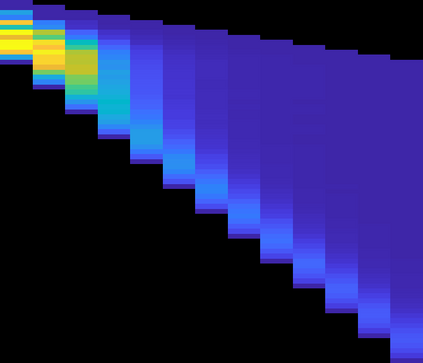Decentralised learning has recently gained traction as an alternative to federated learning in which both data and coordination are distributed over its users. To preserve the confidentiality of users' data, decentralised learning relies on differential privacy, multi-party computation, or a combination thereof. However, running multiple privacy-preserving summations in sequence may allow adversaries to perform reconstruction attacks. Unfortunately, current reconstruction countermeasures either cannot trivially be adapted to the distributed setting, or add excessive amounts of noise. In this work, we first show that passive honest-but-curious adversaries can reconstruct other users' private data after several privacy-preserving summations. For example, in subgraphs with 18 users, we show that only three passive honest-but-curious adversaries succeed at reconstructing private data 11.0% of the time, requiring an average of 8.8 summations per adversary. The success rate is independent of the size of the full network. We consider weak adversaries, who do not control the graph topology and can exploit neither the workings of the summation protocol nor the specifics of users' data. We develop a mathematical understanding of how reconstruction relates to topology and propose the first topology-based decentralised defence against reconstruction attacks. Specifically, we show that reconstruction requires a number of adversaries linear in the length of the network's shortest cycle. Consequently, reconstructing private data from privacy-preserving summations is impossible in acyclic networks. Our work is a stepping stone for a formal theory of decentralised reconstruction defences based on topology. Such a theory would generalise our countermeasure beyond summation, define confidentiality in terms of entropy, and describe the effects of (topology-aware) differential privacy.
翻译:暂无翻译















